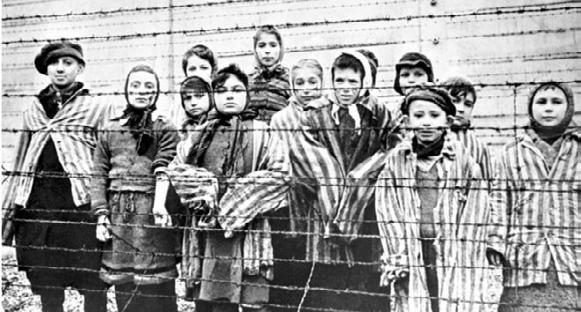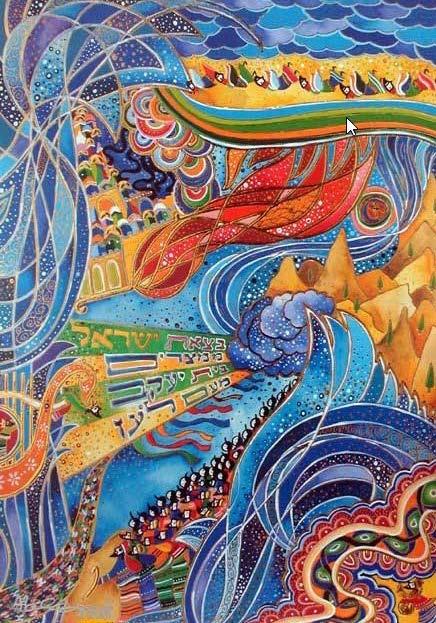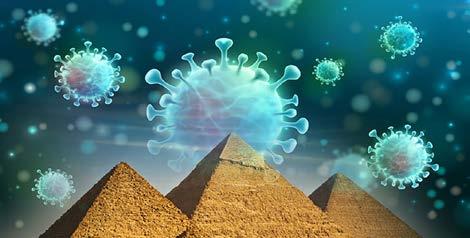
3 minute read
Expressing Gratitude in Difficult Circumstances
from HaSofrim: May 2020
by AUJS
Natalie Gunn
We all know the story of Pesach, and recount the exodus from Egypt, the miracle of the burning bush, Moshe (Moses) protecting the Jewish people and leading us out of Israel through the opening of the Red Sea and then on to wandering through the desert for 40 years. The same one we have recounted over the years, and every year we can learn something new from our history. Our history as the Jewish people has been difficult. It seems we have overcome a lot of adversity and have flourished and strengthened ourselves after each event, choosing to celebrate life. Being grateful in times of hardships is difficult. While choosing to be faithful, to express love and kindness, to have a positive outlook and constantly express our gratitude it can be hard, but is most important.
Advertisement
The story that we recount at both of our Seders is one of freedom and gratitude and unites families around the world. This year it will be different. While we notice each year that this night is different from all other nights from the food that we eat, to the vegetables that we eat and down to being allowed to lean while we eat, which is something to behold, particularly if you are in my house where one is expected to have perfect table manners. This year this night is different because we are unable to enjoy the exodus of Egypt and enjoy our Kosher L’Pesach (permitted for Passover) meal with our extended families, friends and we are unable to attend Shule (Synagogue). This will mean that some people will eat alone, and others will not experience a Seder at all because they will be on the front line saving lives. While of course there is Zoom and that will help engage and provide a virtual means to a Seder; it is not the same.
The COVID-19 pandemic has halted and disturbed the lives of all us around the world. From not being allowed to enjoy the freedom of going outside just because we want to, not being able to celebrate all the Simchas such as Bar and Bat-Mitzvahs and weddings and not being allowed to be there to support those who are grieving. We have been told to stay away from our Grandparents and those who are immuno-compromised, which is very difficult to do. While this disease has provided unstable and challenging circumstances, we need to focus on the positives. We need to have faith that things will get better even if it is slowly.
We need to free ourselves from our greed and selfishness and embody those who are grateful, if not for the circumstances themselves but for the fact that life goes on. While, I sit at the Pesach Seder and listen to my brother sing the Ma Nishtana (the four questions) and ask these questions, I will try not to ponder the existentiality of life at this time but will channel these feelings into a source of Jewish pride that in the face of these hardships we are able to be with each other. I will be thankful that we are able to celebrate the fact that we are no longer slaves. As we sing the song Dayenu, meaning that it was enough. We thank God for all of the miracles that he performed and that one would have been sufficient, but we were blessed with fourteen miracles. As we sing this song we should rejoice and express every ounce of gratitude to those who are working around the clock to ensure that we are all safe.
Thank you to those of you who ensured that the Pesach Seder would go on, from importing food and drink and for cooking our meals.
Most notably, to all of the doctors, nurses, pharmacists, healthcare workers, childcare workers, teachers, policemen and women, cleaners, garbage collectors, supermarket employees, municipal department, food shops workers and to all those who are on the front line who are working tirelessly to ensure that we are all safe and that we have all that we need, we are forever grateful.
This year, even though we are in times that we never thought were possible, and this reality is beyond a burden for all involved. If we are able to stop and reflect on those who we are grateful for, this time in isolation will be a lot more enjoyable.
Chag Sameach
This piece is dedicated to my Dad Dr Barry Gunn who is working tirelessly around the clock to ensure that those who are sick are cared for. He is a selfless individual and I thank him for putting others before himself.









